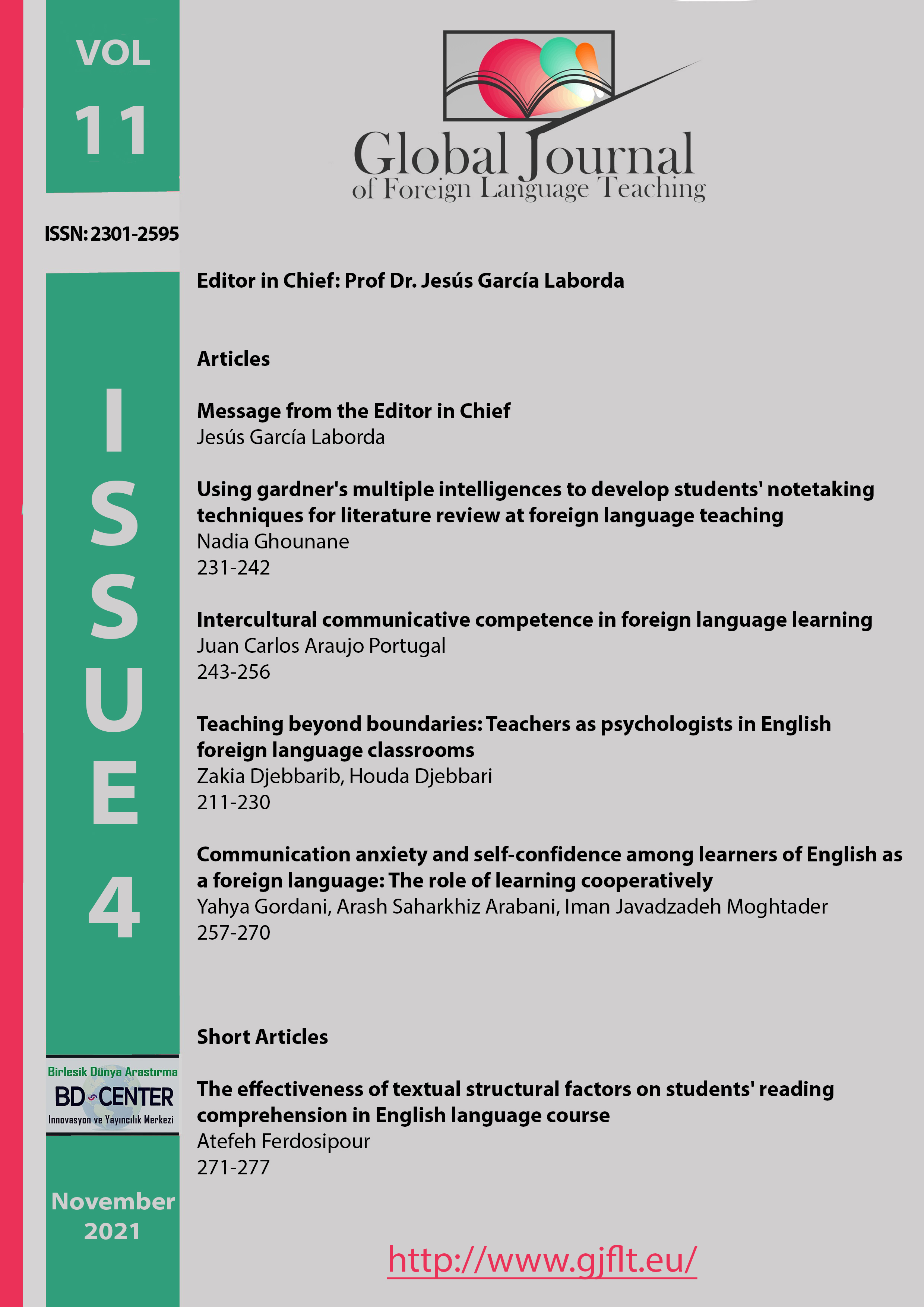Teaching beyond boundaries: Teachers as psychologists in English foreign language classrooms
Main Article Content
Abstract
It is acknowledged that large waves of recent research have necessitated new ways of thinking about learning and teaching. However, most teachers are not adequately prepared for considering the psychological health of their learners. We may assume that there seem to have no adequate resources to help them understand the fundamental issue that underpins psychology in English Foreign Language classrooms. Hence, this paper aims to redirect teachers’ attention, inspire their curiosity to move from the traditional ways of teaching to psychology-based education, in the hope to prepare our future generation to successfully engage the world. To collect data for the study, the researcher made use of questionnaires for students and teachers, and semi-structured interviews for teachers. Data were analyzed using SPSS. The results showed that self-confidence plays a role in learning a new language. Other findings are also displayed in the research and recommendations are made at the end of the study.
Keywords: English foreign language; classroom; Anxiety; learners; positive psychology; psychological health; self-confidence.
Downloads
Article Details

This work is licensed under a Creative Commons Attribution 4.0 International License.
Authors who publish with this journal agree to the following terms:- Authors retain copyright and grant the journal right of first publication with the work simultaneously licensed under a Creative Commons Attribution License that allows others to share the work with an acknowledgement of the work's authorship and initial publication in this journal.
- Authors are able to enter into separate, additional contractual arrangements for the non-exclusive distribution of the journal's published version of the work (e.g., post it to an institutional repository or publish it in a book), with an acknowledgement of its initial publication in this journal.
- Authors are permitted and encouraged to post their work online (e.g., in institutional repositories or on their website) prior to and during the submission process, as it can lead to productive exchanges, as well as earlier and greater citation of published work (SeeThe Effect of Open Access).
